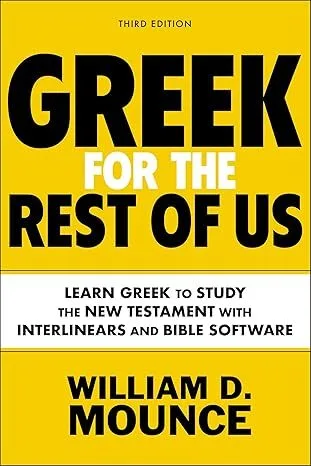Strong’s G4867: A compound verb combining σύν (with) and ἀθροίζω (to gather), meaning to collect or gather together. In NT usage, it specifically describes the gathering of believers in community, emphasizing the purposeful assembly of God’s people for fellowship and mutual encouragement.
U- Unveiling the Word

Key Information
συναθροίζω

Strong’s Entry
g4867
συναθροίζω represents the intentional gathering of people into a unified group. As a compound word, it combines the concept of togetherness with concentrated gathering, creating a term that emphasizes purposeful assembly. In the New Testament, it appears notably in the context of the disciples gathering after Jesus’s resurrection, highlighting the importance of collective witness and shared experience in the early church. The early church understood this term as describing their distinctive gatherings, separate from regular social assemblies. Today, it continues to remind us of the importance of intentional Christian gathering and the power of shared testimony and experience in building faith community.
N – Necessary Information
- Greek Word: συναθροίζω, sunathroizō, /soon-ath-ROY-zoh/
- Detailed Pronunciation: soon (as in ‘soon’) + ath (as in ‘path’) + ROY (as in ‘boy’) + zoh (as in ‘zone’)
- Part of Speech: Verb
Etymology:
- σύν (syn): prefix meaning “with, together”
- ἀθροίζω (athroizō): root verb meaning “to gather, collect”
- From ἀθρόος (athroos): “in crowds, assembled in throngs”
D – Defining Meanings
- To gather together in one place
- To assemble as a group
- To collect people purposefully
- To bring together in community
- To convene deliberately
For compound words:
σύν emphasizes the unity of the gathering, while ἀθροίζω contributes the concept of intentional collection or assembly, creating a word that describes purposeful congregation.
Translation Options:
- “To gather together” – Emphasizes both collection and unity
- “To assemble as one” – Highlights the unified nature of the gathering
- “To congregate” – Captures the formal or purposeful nature of the gathering
E – Exploring Similar Words
- ἀθροίζω (athroizō) /ath-ROY-zoh/ – to gather without emphasis on unity. See G119
- συνάγω (synagō) /soon-AG-oh/ – to bring together, often in synagogue context. See G4863
- ἐπισυνάγω (episynagō) /ep-ee-soon-AG-oh/ – to gather additionally or again. See G1996
R – Reviewing the Word’s Morphology
For this verb:
- Tense: Present, Perfect, Aorist
- Voice: Active, Passive
- Mood: Indicative, Participle
- Person: First, Second, Third
- Number: Singular, Plural
- Aspect: Imperfective (present), Perfective (aorist), Stative (perfect)
Example morphological changes:
- Present Active: συναθροίζω (I gather together)
- Aorist Active: συνήθροισα (I gathered together)
- Perfect Passive: συνήθροισμαι (I have been gathered)
S – Studying Lexicon Insights
BDAG emphasizes the purposeful nature of the gathering. Thayer’s notes its use in describing formal assemblies. LSJ provides evidence of use in political and social gatherings. Vine’s connects it to the concept of Christian fellowship. Strong’s emphasizes the intensified meaning through the compound form. LEH notes its use in the Septuagint for gathering armies. Moulton and Milligan find evidence of its use in describing official assemblies.
T – Tracing the Scriptures
First Appearance:
Luke 24:33: “So they rose up that very hour and returned to Jerusalem, and found the eleven and those who were with them gathered together [συνηθροισμένους].”
Additional References:
Acts 12:12, Acts 19:25
A – Analyzing Classical Usage
| Author: Work | Text |
|---|---|
| Xenophon: Anabasis | “The soldiers gathered together [συναθροίσαντες] to hear the general’s speech” |
| Herodotus: Histories | “The people were assembled [συναθροισθέντες] in the marketplace” |
| Thucydides: History | “The allies gathered their forces [συνήθροιζον] before the battle” |
N – Noteworthy Summary
συναθροίζω beautifully captures the purposeful gathering of God’s people. The use of this word in describing the disciples’ gathering after the resurrection reminds us that the good news of King Jesus brings people together in powerful ways. It shows us that Christian community isn’t just casual association but intentional assembly for witness, worship, and mutual encouragement. This gathering continues to be a testimony to the unifying power of the gospel.
D – Did You Know?
- The word appears in key post-resurrection narrative contexts
- It was commonly used in Greek military contexts for mustering troops
- Early church documents used this term to distinguish Christian gatherings from other social assemblies
Strong’s G4867: A compound verb combining σύν (with) and ἀθροίζω (to gather), meaning to collect or gather together. In NT usage, it specifically describes the gathering of believers in community, emphasizing the purposeful assembly of God’s people for fellowship and mutual encouragement.
Part of speech: Verb
Tags: gathering, assembly, community, fellowship, congregation, unity, collective worship, Christian assembly, purposeful gathering, resurrection witnesses, church gathering, intentional community
Note: While this entry strives for accuracy, readers engaged in critical research should verify citations and keyword occurrences in their Bible translation of choice. For Biblical citations, the F.O.G Bible project recommends Logos Bible software.
Strong's g4867




